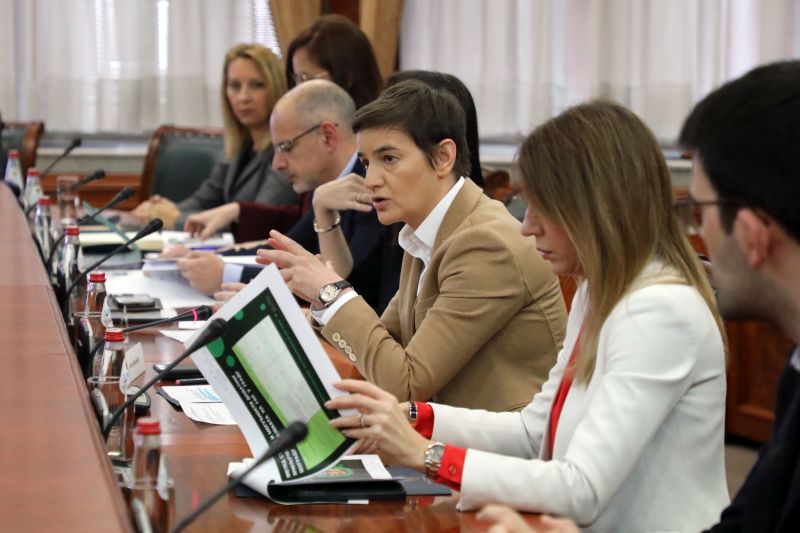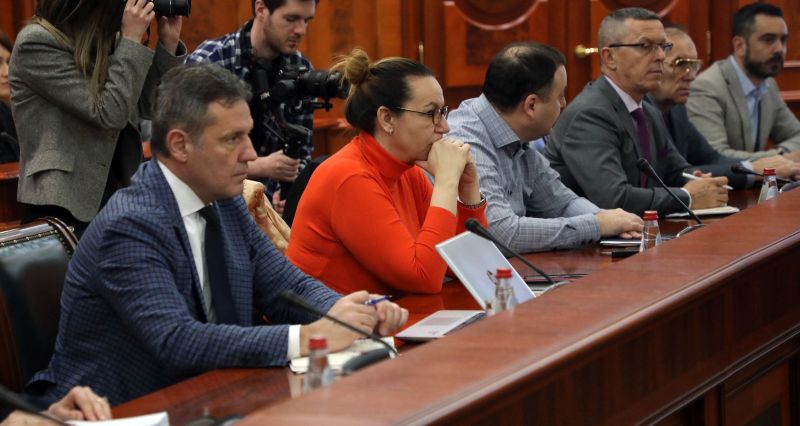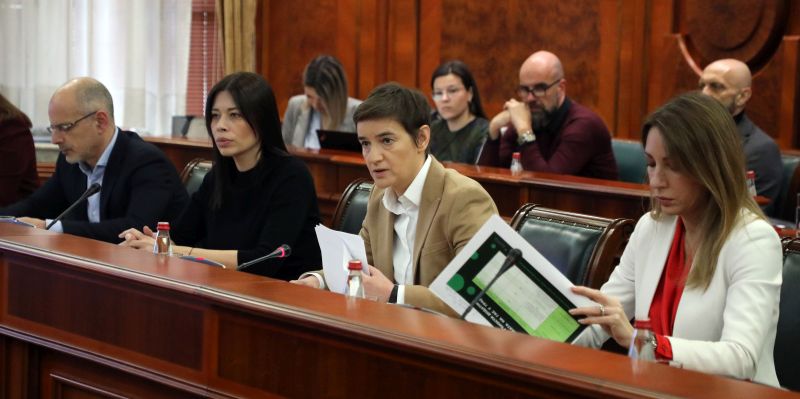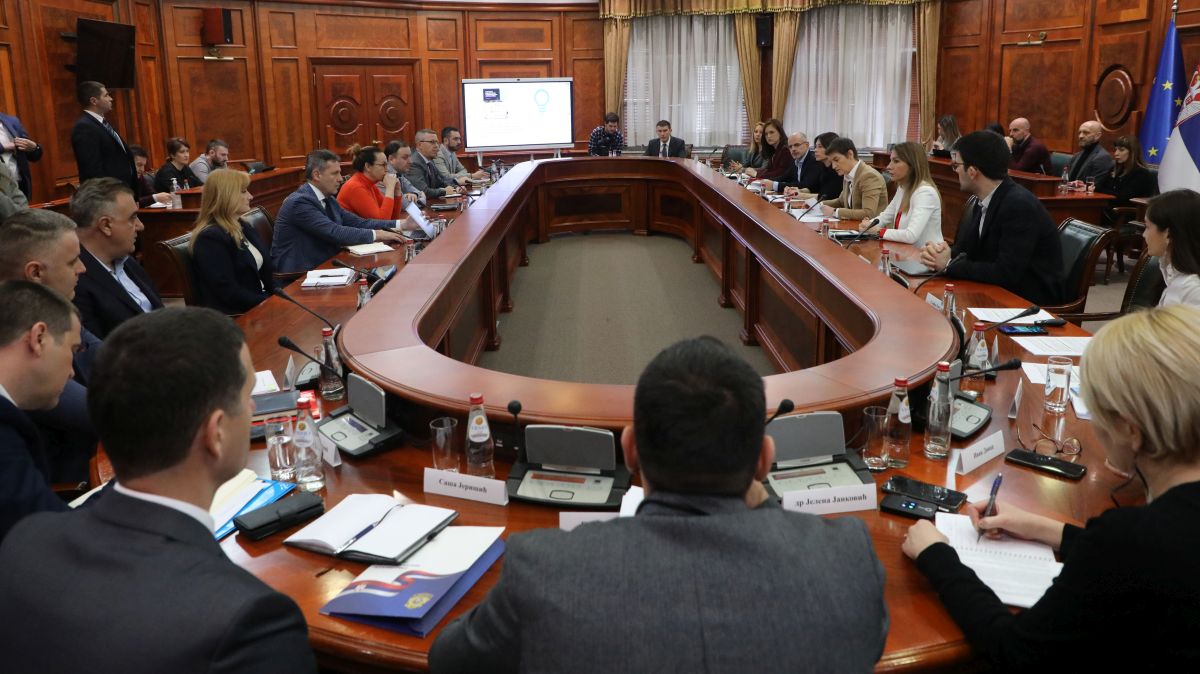Prime Minister Ana Brnabic chaired today the Working Group for systemic solutions to air protection issues, which analysed the steps taken by the operational teams since the last meeting.
- Serbia
Get to know Serbia
- Citizens
Culture and science
Health services
Pension and disability insurance
- Business
Employment
Economy
- Media
- Government
- Contact
Keep in touch
Keepin touch
Whether you have a question, comment, suggestion or any problem in the purview of the government, send us your message and we will try to respond as soon as possible. If your problem is not in our purview, we will forward your message to the relevant institution.
Intensifying steps to improve air quality
The problem of air pollution is divided into four basic segments: individual furnaces, traffic, energy efficiency and sources of air pollution from agriculture.
Participants in the meeting established further steps related to afforestation of poorer quality agricultural land in 10 local self-government units, such as Belgrade, Nis, Kragujevac and others, which are among the most polluted when it comes to PM particles.
Brnabic underlined that it is necessary to determine what the additional effects of greater afforestation will be and pointed out that there are already concrete results, but that the intention is to do much more in the future.
The members of the Working Group agreed that in the next 24 months, boiler plants in public institutions that currently use coal, heavy fuel oil and fuel oil for heating, and for which there are technical possibilities of connection to the district heating system or to the gas pipeline, should be shut down.
The Prime Minister noted that the citizens of Serbia are not sufficiently informed about the fact that the government recognises this problem, that it is working intensively on it, and that the entire Action Plan accompanying the Air Protection Programme in Serbia for the period from 2022 to 2030 will soon be presented to the public in order to see the concrete projects that are being implemented.
The members of the Working Group stated that one of the solutions for households is a subsidised transition to ecological heating methods, and when it comes to reducing pollution caused by traffic, 10 new electric chargers will be installed on highways during this year.
At the meeting, it was pointed out that intensive work will be done to make it financially easier for all citizens to switch to environmentally friendly energy sources that do not pollute the air.
-
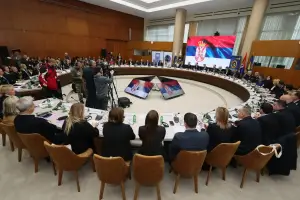 Belgrade, 27 November 2025
Belgrade, 27 November 2025Inclusion of women in security structures key to safer, more stable society
-
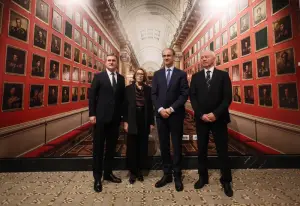 Belgrade, 26 November 2025
Belgrade, 26 November 2025Macut opens Traces of Light: Serbs in the Mirror of the Hermitage exhibition
-
 Belgrade, 26 November 2025
Belgrade, 26 November 2025Young people as visionaries of future modern Serbia
-
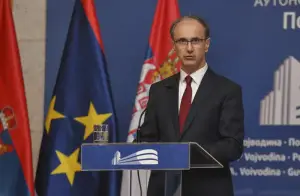 Novi Sad, 25 November 2025
Novi Sad, 25 November 2025Unification of Vojvodina with Serbia realisation of centuries-old dream
-
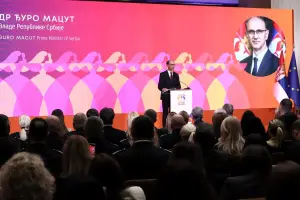 Belgrade, 25 November 2025
Belgrade, 25 November 2025Serbia makes significant step in fight against violence against women
-
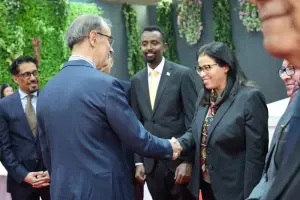 Belgrade, 23 November 2025
Belgrade, 23 November 2025Potential for further improving cooperation between Serbia, Arab countries
-
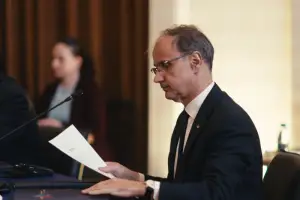 Belgrade/Tirana, 21 November 2025
Belgrade/Tirana, 21 November 2025Connected region best path to full EU membership
-
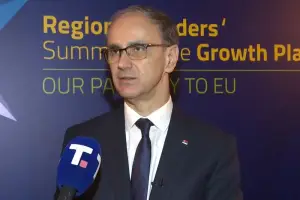 Belgrade/Tirana, 21 November 2025
Belgrade/Tirana, 21 November 2025Serbia on right track in meeting EU accession criteria
-
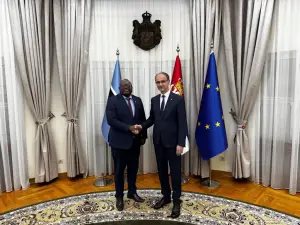 Belgrade, 21 November 2025
Belgrade, 21 November 2025Serbia, Botswana committed to peace, respect for international law
-
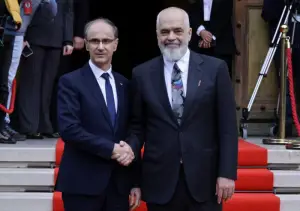 Belgrade/Tirana, 21 November 2025
Belgrade/Tirana, 21 November 2025Prime Minister Macut at Western Balkans Leaders’ Summit

